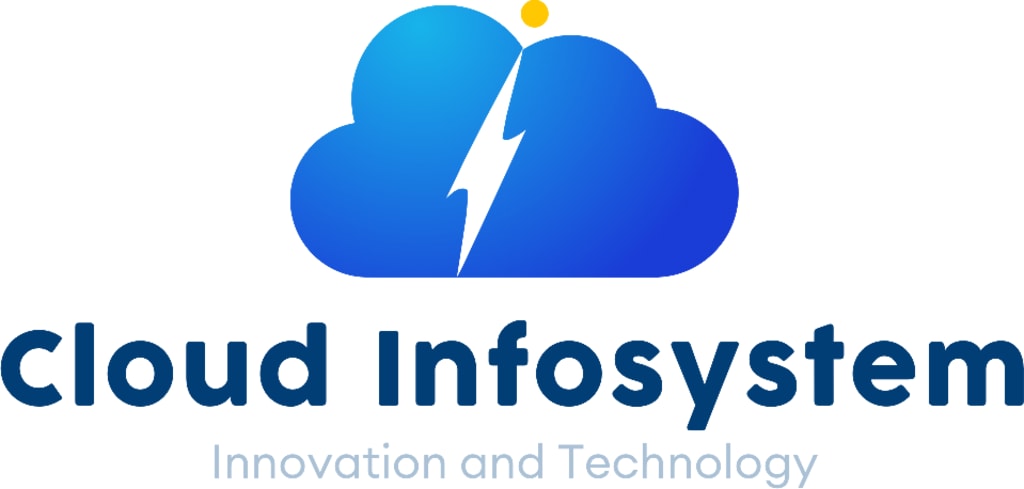Unveiling the Benefits of Sales CRM Software for Your Business!
CRM Solutions

Introduction:
In today's highly competitive business landscape, organizations are constantly seeking ways to streamline their operations, enhance customer relationships, and drive revenue growth. One powerful tool that can help achieve these goals is sales Customer Relationship Management (CRM) software. By implementing a robust CRM solution, businesses can gain numerous benefits that contribute to their success and profitability. This article explores the advantages of implementing sales CRM software in your business, covering aspects such as customer relationship management, sales process optimization, data-driven insights, team collaboration, and more.
Benefits of Implementing Sales CRM Software:
Enhanced Customer Relationship Management:
Sales CRM software serves as a centralized hub for customer data, enabling businesses to gain a comprehensive view of their customers. It allows for the efficient organization, tracking, and analysis of customer information, including contact details, purchase history, preferences, and interactions. This wealth of data empowers businesses to deliver personalized experiences, tailor marketing campaigns, and provide timely customer support, leading to improved customer satisfaction and loyalty.
Streamlined Sales Processes:
One of the primary benefits of sales CRM software is its ability to automate and streamline sales processes. From lead management to deal tracking, CRM systems provide a structured framework for managing sales pipelines. Automated workflows can be created to handle routine tasks, such as data entry, follow-ups, and scheduling, freeing up sales representatives' time to focus on building relationships and closing deals. This streamlining of processes leads to increased efficiency, shorter sales cycles, and improved conversion rates.
Data-Driven Insights and Reporting:
Sales CRM software generates valuable insights through robust reporting and analytics capabilities. By tracking and analyzing key performance metrics, businesses can gain a deeper understanding of their sales performance, identify trends, and make informed decisions. CRM systems provide visual dashboards and customizable reports that highlight crucial data points, such as sales revenue, conversion rates, and customer acquisition costs. These insights enable businesses to identify areas for improvement, optimize sales strategies, and align their resources effectively.
Improved Sales Team Collaboration:
Effective collaboration among sales team members is crucial for driving sales success. Sales CRM software facilitates seamless communication and information sharing within the team. It enables real-time updates on leads, opportunities, and customer interactions, ensuring that everyone is on the same page. Additionally, CRM systems allow for task assignment, progress tracking, and visibility into team members' activities. This collaborative environment enhances teamwork, fosters knowledge sharing, and ultimately improves the overall performance of the sales team.
Increased Sales Productivity:
Sales representatives often spend a significant amount of time on administrative tasks, such as data entry and reporting. Sales CRM software automates these repetitive tasks, reducing manual effort and increasing productivity. By providing a centralized repository for customer information, CRM systems make it easier to access relevant data, track customer interactions, and prioritize leads. Moreover, CRM software integrates with email, calendar, and other productivity tools, allowing sales reps to manage their schedules, appointments, and follow-ups efficiently. These productivity gains enable sales teams to focus their efforts on high-value activities, such as building relationships and closing deals.
Enhanced Sales Forecasting and Planning:
Accurate sales forecasting and effective planning are critical for businesses to allocate resources efficiently, set realistic targets, and make informed business decisions. Sales CRM software leverages historical data, customer insights, and market trends to provide accurate sales forecasts. With these forecasts, businesses can optimize inventory management, production planning, and resource allocation. Moreover, CRM systems enable businesses to evaluate the effectiveness of different sales strategies, identify underperforming areas, and adjust their plans accordingly, resulting in improved overall sales performance.
Customer Retention and Loyalty:
Sales CRM software plays a vital role in nurturing existing customer relationships and fostering loyalty. By maintaining a comprehensive customer database, businesses can personalize their interactions and communications with customers. CRM systems allow for targeted marketing campaigns, automated follow-ups, and personalized recommendations based on customer preferences and purchase history. These personalized interactions enhance customer satisfaction, strengthen loyalty, and increase the likelihood of repeat purchases and referrals.
Integration with Other Business Systems:
CRM software often integrates with other essential business systems, such as marketing automation, customer support, and accounting. These integrations create a seamless flow of information across different departments, eliminating data silos and promoting cross-functional collaboration. For example, integrating CRM with marketing automation enables businesses to track the effectiveness of marketing campaigns and capture leads directly into the CRM system. Such integrations enhance efficiency, eliminate manual data entry, and provide a holistic view of customer interactions across the organization.
Scalability and Adaptability:
Sales CRM software is designed to accommodate the growth and changing needs of businesses. Whether expanding into new markets, acquiring more customers, or adding new team members, CRM systems can scale accordingly. They offer flexible customization options, allowing businesses to adapt the software to their specific requirements. CRM software also provides scalability in terms of data storage and user access, ensuring that businesses can continue to leverage the system effectively as they grow.
Competitive Edge:
Implementing sales CRM software gives businesses a competitive edge in the marketplace. By leveraging the benefits mentioned above, organizations can deliver superior customer experiences, optimize their sales processes, and make data-driven decisions. This results in improved sales performance, increased customer satisfaction, and enhanced overall business efficiency. With a CRM system in place, businesses can differentiate themselves from competitors, attract more customers, and achieve long-term success.
Conclusion:
Implementing sales CRM software brings numerous benefits to businesses across various industries. From enhanced customer relationship management to streamlined sales processes, data-driven insights, and improved team collaboration, CRM systems serve as powerful tools for driving sales success. By leveraging the features and capabilities of CRM software, businesses can optimize their sales strategies, increase customer satisfaction and loyalty, and gain a competitive edge in the marketplace. Embracing CRM technology is a wise investment that can propel businesses toward growth, profitability, and long-term success.
For Free CRM Consultation for Your Business:
Call Us Today at: +91 98152 01602
Visit: Zoho CRM Help|Salesforce CRM|CRM customization Service
Mail To: [email protected]





Comments
There are no comments for this story
Be the first to respond and start the conversation.